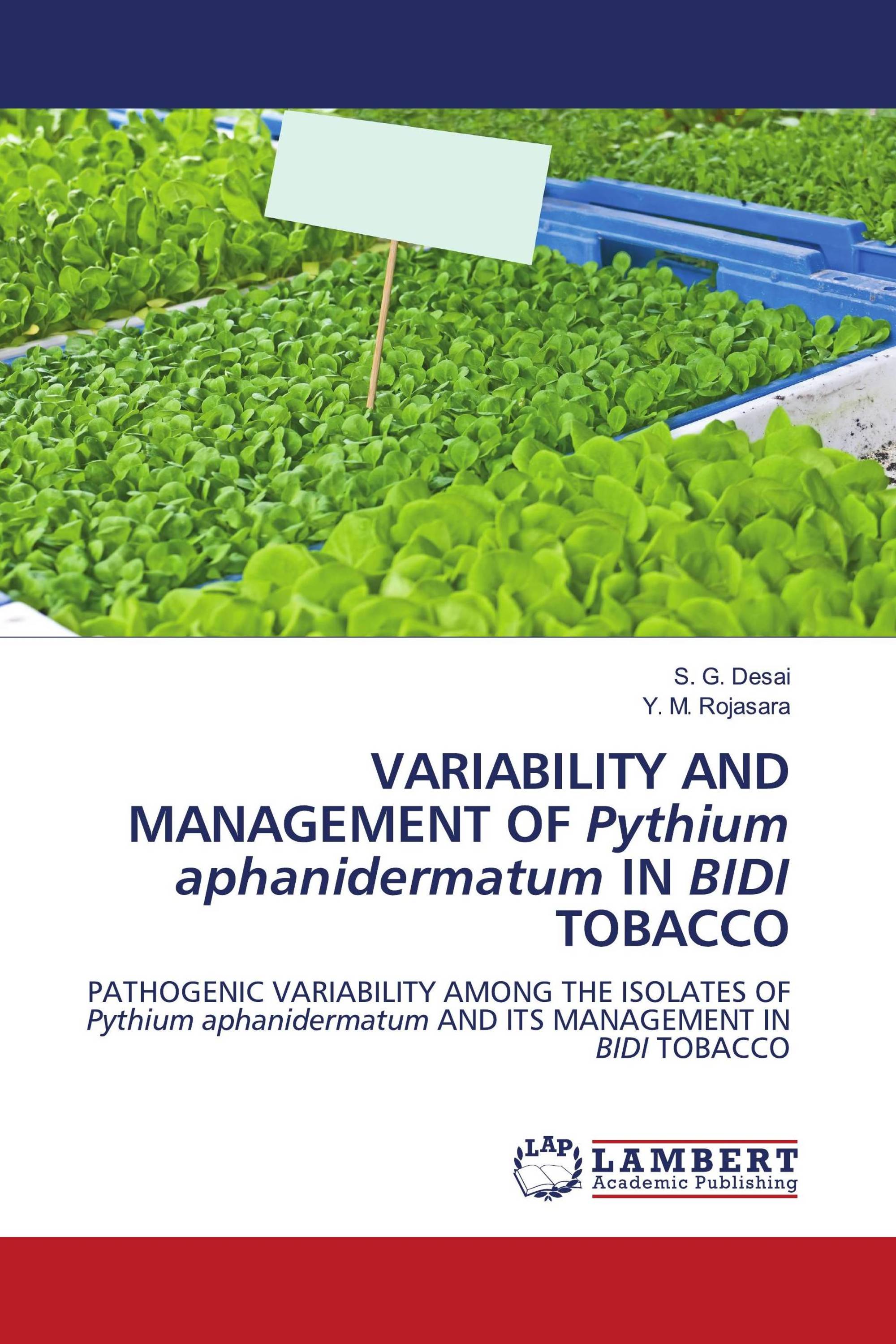VARIABILITY AND MANAGEMENT OF Pythium aphanidermatum IN BIDI TOBACCO
PATHOGENIC VARIABILITY AMONG THE ISOLATES OF Pythium aphanidermatum AND ITS MANAGEMENT IN BIDI TOBACCO
€ 60,90
This research investigates the pathogenic variability of Pythium aphanidermatum and its impact on tobacco (Nicotiana tabacum L.) cultivation, specifically bidi tobacco, a major cash crop of Gujarat, India. Key findings include the isolation and identification of 15 pathogenic isolates from infected soil, with Pa4 and Pa14 isolates showing the highest virulence, causing up to 98% seedling mortality. Screening across 28 wild Nicotiana species and tobacco varieties revealed varying resistance, with ABT 10 and Anand 2 being relatively more resilient, while no variety was entirely resistant. Biochemical analysis showed that higher phenol and lower sugar content were associated with increased resistance. Fungicide efficacy trials in nursery conditions identified metalaxyl M + mancozeb, azoxystrobin + difenoconazole, and benalaxyl-M + mancozeb as the most effective treatments. Organic inputs like Panchagavya (5%) were moderately effective in inhibiting the pathogen’s growth. The findings highlight the need for integrated management practices and resistant varieties to mitigate damping-off disease, thereby supporting sustainable bidi tobacco production in Gujarat..
Book Details: |
|
|
ISBN-13: |
978-3-659-55371-4 |
|
ISBN-10: |
3659553719 |
|
EAN: |
9783659553714 |
|
Book language: |
English |
|
By (author) : |
S. G. Desai |
|
Number of pages: |
92 |
|
Published on: |
2024-11-13 |
|
Category: |
Agriculture, horticulture, forestry, fishery, nutrition |
